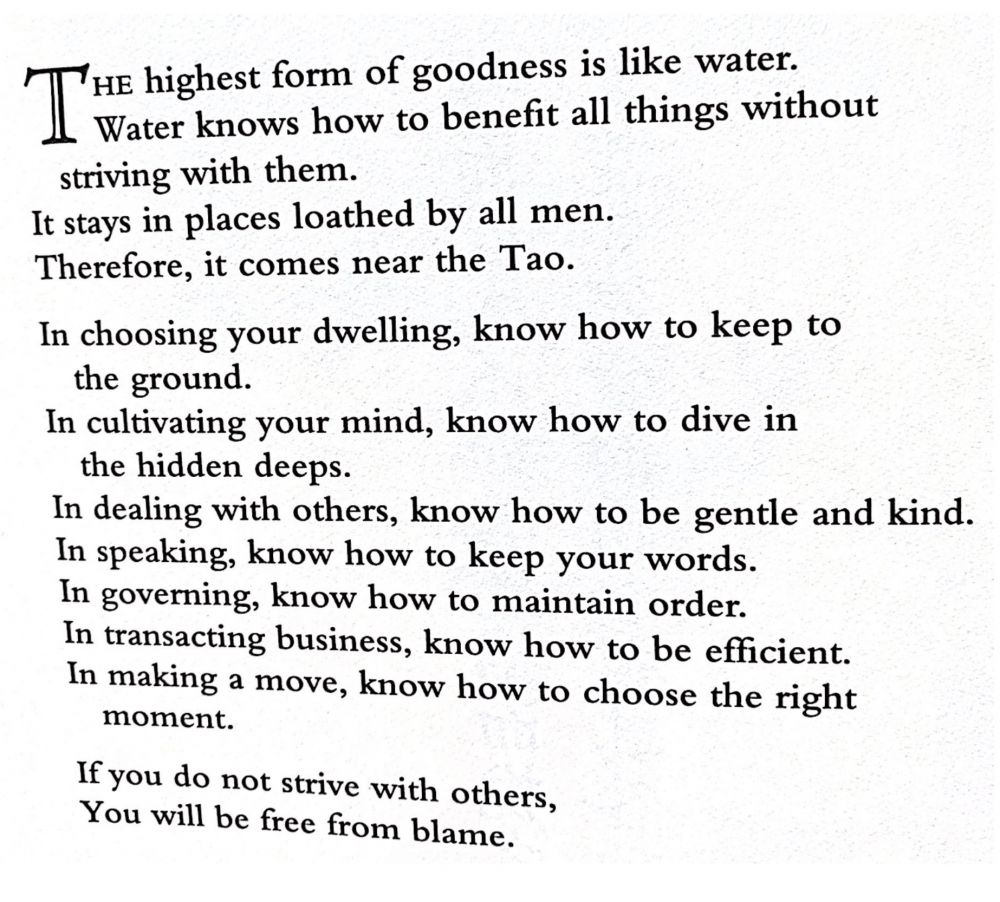最新文章
归档
2017 (12)
2018 (64)
2019 (118)
2020 (98)

正文
道德经上篇:《道经》
第八章
【原文】
上善若水①。水善利万物而不争,处众人之所恶②,故几(jī)于道③。居善地④,心善渊⑤,与善仁,言善信,政善治⑥,事善能,动善时。夫唯不争,故无尤⑦。
【注释】
①上善:最高等的善。若:像。
②处:停留、居住之意。
③几(ji:一声):作“接近”解。
④地:低下、卑下的意思。
⑤渊:深的意思。
⑥正:行政的意思。
⑦尤:怨咎。
【译文】
最高的善就像水一样,水善于滋润万物却不与其争短长。它总是停留在众人不愿去的低洼之地,这种品德,最按近于“道”。上善的人总是甘居卑下的环境,心胸善于保持沉静而深远博大,待人善于相助、真诚可亲,说话善于信守诺言,为政善于治理,办事善于发挥所长,行动善于把握时机。正因为有不争的美德,所以才不会出现过失,招来怨咎。
English Translation
Version 1:by Daniel Baida Su and Shangyu Chen
The highest good is like water,
Nourishing all things and not contending with them;
Dwelling in loathsome places and thus coming close to Tao;
Dwelling among the lowly;
Great-hearted;
Loving in relationships;
Sincere in speech;
Establishing order in government;
Demonstrating ability in undertakings;
Perfect in its timing.
Only where there is no contention can there be flawlessness.
Nourishing all things and not contending with them;
Dwelling in loathsome places and thus coming close to Tao;
Dwelling among the lowly;
Great-hearted;
Loving in relationships;
Sincere in speech;
Establishing order in government;
Demonstrating ability in undertakings;
Perfect in its timing.
Only where there is no contention can there be flawlessness.
Version 2:by John C. H. Wu

评论
目前还没有任何评论
登录后才可评论.



